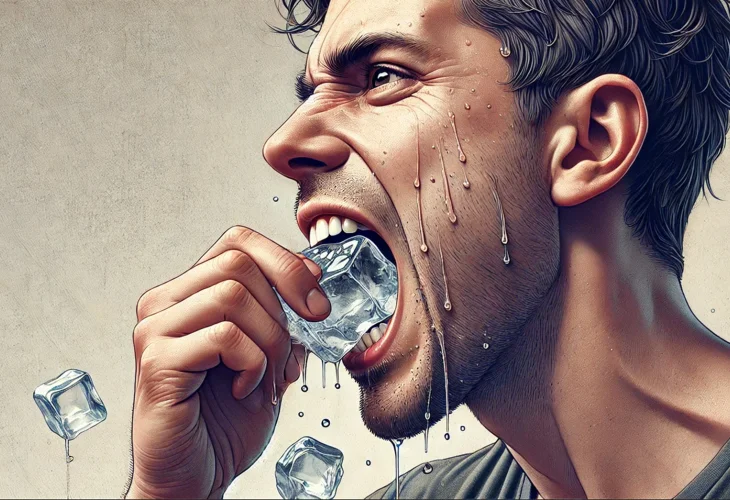Health and Nutrition
Why Chewing Ice Could Be Harmful: What It Says About Your Health
Discover the dental risks and hidden link between ice chewing and iron deficiency anemia- and when to see a doctor.

Chewing ice might seem harmless, but research shows it can pose serious risks to both dental and overall health. The habit, known as pagophagia, a form of pica, involves the craving to eat non-food substances like ice, dirt, or even paper.
Dental Risks of Ice Chewing
Ice is a hard, cold substance that can easily cause cracks in tooth enamel, chips, or even full fractures. These injuries may increase tooth sensitivity and the risk of cavities or infections. According to dental experts like Dr. Allison Perry, persistent ice chewing can lead to root canal infections or tooth extractions, especially among those who habitually chew ice.
A Warning Sign of Iron Deficiency
One of the most surprising findings from medical research is the connection between ice chewing and iron deficiency anemia. A study published in Mayo Clinic Proceedings found that many anemic patients reported an intense craving for ice. Researchers suggest this may be the body's attempt to relieve fatigue, a common symptom of anemia. In many cases, the craving disappears after iron levels are restored through supplements, strongly supporting the link.
Other Physical and Emotional Impacts
Beyond dental damage, chewing ice may strain the jaw muscles and joints, potentially causing pain or temporomandibular joint (TMJ) issues, especially in people under stress or with muscle tension. In some cases, the habit may also be connected to underlying anxiety or restlessness.
What You Can Do
If you find yourself regularly craving ice, consider getting your iron levels tested as it could be a sign of a treatable nutritional deficiency. Dentists also recommend replacing ice with softer cold foods like frozen yogurt to satisfy cravings without damaging your teeth.
In short, ice chewing isn’t as innocent as it seems. It may be your body's way of signaling a deeper issue- and it's worth paying attention.

